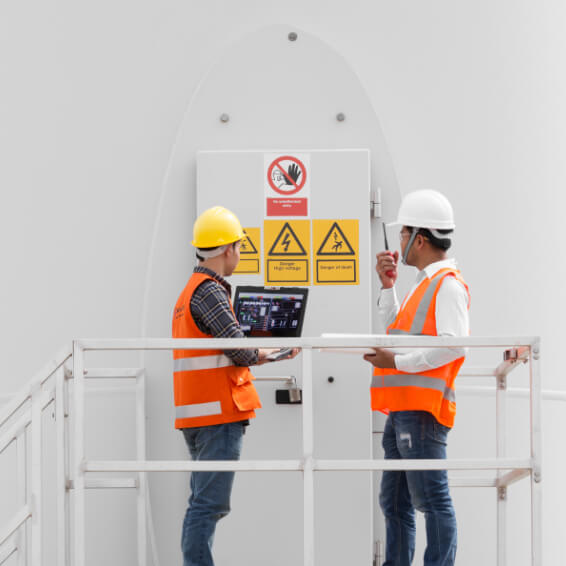Our Coordination team always undertake a thorough validation of inspector CV’s before they can be accepted onto our database. We aim to have only the best, multi-skilled inspectors, which is why we place a great deal of emphasis checking and validating certifications.
Identification of a fake certificate
Our Coordination team always undertake a thorough validation of inspector CV’s before they can be accepted onto our database. We aim to have only the best, multi-skilled inspectors, which is why we place a great deal of emphasis checking and validating certifications.
This case study discusses how our expert coordination team identified a fake certification during our onboarding process. This prevented an uncertified inspector from joining our team and going out into the field.

Importance of identifying fake certifications
Fake certifications are extremely detrimental for the inspection industry. They allow un-qualified (or less qualified than they claim) inspectors to engage in inspection activities, which could negatively affect the completion of a project. Most importantly, if failed to be identified, fake certifications could prove to be potentially dangerous in terms of health and safety.
As a result of our thorough screening process, NECIT are able to easily identify falsified certifications. Resulting in the exclusion of the inspector (s) from joining our database. Furthermore, these inspectors will not be able to complete any jobs for NECIT as a result of the fake certification.


Our Process
The NECIT coordination team are fully trained to extract key information from incoming inspector CV’s, as well as detect the difference between fake and genuine certifications.
For an upcoming project in Germany we required inspectors with experience and certifications relating to both Electrical and Instrumentation type inspection. Therefore, we received a large number of potential inspectors CV’s on our INSPEKTA-GADGET portal who were interested in supporting this project. Our coordination team is trained to extract key information from these CV’s and verify all certifications we gather from the hopeful inspectors.

How the fake certification was found
As soon as we received the said inspectors CV and certifications, our coordination team completed our thorough screening process. It was during this process we discovered this fake certification.
The inspector in question claimed they had a CompEx QA/QC Electrical and Instrumentation certification, however after our verification process, we found this to be falsely created to try and deceive inspection companies.
CompEx
After contacting CompEx, who are a recognised global competency scheme, they also verified that the certification was a fake. Our coordination team, when verifying any CompEx CV, use their online certification verification tool to ensure we only onboard inspectors with verified certificates. You can find out all about CompEx here.
Summary
NECIT have always thoroughly checked onboarding inspectors CV’s and verified all certifications to ensure we only source the best and highly certified personal in the field. The good work of our coordination team, allows us to filter away fake certifications and prohibit the personnel who are trying to deceive us from our database. Our clients can be sure all of our inspectors have been fully vetted and verified, providing them with confidence that NECIT can take full control of their project.